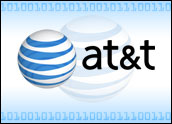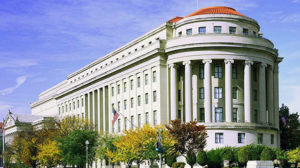
Not so fast, AT&T. A Federal Communications Commission (FCC) official has addressed the challenges that AT&T faces in pursuing its US$39 billion acquisition of T-Mobile. Both FCC and Department of Justice (DOJ) regulators will have to approve of the merger first, and the transaction will not get a rubber stamp, an FCC official told The Wall Street Journal.
If the merger were to come to fruition, AT&T would be the largest cellular provider in the U.S., with around 130 million subscribers.
The FCC has not even begun to formally evaluate the merits of the AT&T proposal or whether it would be in the public’s interest, the official told the WSJ off the record.
The FCC did not respond to the E-Commerce Times’ request for comments by press time.
Compromise Likely
The planned merger would put Sprint in third place in the mobile market, at a substantial distance from the top two — AT&T and Verizon.
“I certainly feel that the FCC will question this,” Allen Nogee, principal analyst for wireless technology at In-Stat, told the E-Commerce Times. “I do think that a merger would be a big blow to competition in the wireless area. While there are still many other wireless companies, the wireless industry is so large that the number of available operators is not large. Still, AT&T could show that new companies, like LightSquared, are entering the market.”
If the deal does go through, it would most likely include onerous provisions set forth by the FCC.
“I do think it will eventually go through, because these deals always go through, but the FCC will certainly use this opportunity to get what it wants out of the deal,” said Nogee. “One thing that comes to mind is that the FCC may force it to maintain 2G services far longer than AT&T would like.
“Another possibility is that the FCC may require AT&T to provide coverage — and even 3G or 4G services — in remote rural areas that wouldn’t otherwise be covered,” he continued. “And a third possibility is that the FCC could take some of the joint spectrum that AT&T and T-Mobile have and define how it is to be used.”
AT&T may have to make some compromises to attain a seal of approval for the deal.
“Mergers like this don’t happen often, and there aren’t many others possible either, so the FCC might take this as a perfect opportunity to get what it is really after,” said Nogee. “I would be very surprised if it’s not approved in some form or another, but it’s very likely that there will be some serious concessions.”
In the Public Interest?
AT&T is braced for a high level of scrutiny.
“The deal will undergo a thorough review by the Department of Justice and the FCC,” Michael Balmoris, an AT&T spokesperson, told the E-Commerce Times. “We understand that Congress, the DoJ, the FCC, as well as wireless consumers will have questions about the transaction. We look forward to answering and addressing those questions.”
One thing that could worry the FCC is a possible violation of antitrust laws; the deal could also stymie fair competition in the mobile arena.
“We are confident that the facts will demonstrate that the deal is in the public interest and that competition will continue to flourish,” said Balmoris.
“For example, a large majority of Americans today can choose from at least five wireless providers offering nationwide service,” he pointed out. “Also, the transaction will allow us to expand the next generation of mobile broadband to 95 percent of the U.S. population — up from 80 percent as previously planned — covering an additional 46.5 million Americans, a key objective of the administration.”


























































































Social Media
See all Social Media